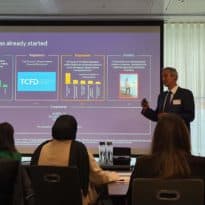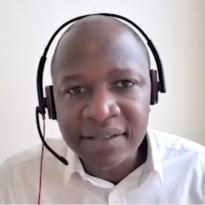Paraplanners need to dig deep under the bonnet of ethical funds to ensure the investments they are selecting truly meet their clients ethical preferences.
Consumer interest in ESG and responsible investing has seen a wave of communications from investment companies and companies in general professing their ESG credentials.
But there have been warnings around ‘green washing’ – where funds purport to follow ESG principles but hold stocks with links to industries which clients would not want to be invested in – and in particular, for those analysing funds to look beyond the top holdings and ensure every stock held aligns with their clients’ ethical principles.
Speaking at a briefing on Investec Asset Management’s approach to sustainability and ethical investing, John Green, co-CEO of the company (pictured), said there are two primary aspects to the way investment houses should deal with sustainability issues.
The first is to ensure that as a company they are doing the right things and walking the walk in the way they run their businesses.
Second, is progressing the integration of sustainability considerations into mainstream investments.
But, he added, more needs to be done beyond these two considerations. “Integration is critical, it’s important but it’s not enough.”
The third leg, he said, is taking investment decisions that are “positively impacting sustainability issues”.
“It has to go beyond the topics of divestment, exclusion and screening that have dominated public discussions.” Often, Green said, the asset management industry is focussed on “doing the easy thing… [they] kick companies out of the portfolio and move on. That’s easy to do. But taking the time to understand what companies are doing, the genuine impact they are having, that’s a difficult process that requires a lot of time, attention and a lot of investment,” he stressed. “We believe it’s very necessary.”
Investec has a history of positive impact investment from investing in its home continent of Africa. Green pointed to the firm’s Emerging Africa Infrastructure, UK Sustainability Equity and Global Environmental Strategy funds as three that are focussed on making a positive impact with their investments.
Flagging the Global Environmental Strategy fund, which focusses on the risks of climate change by investing in companies that benefit from the trend towards decarbonisation, Green said: “I would argue that some of the most exciting investment opportunities over the next decade are going to come out of this area – those companies that are really innovative, really deploying and really making a difference to climate issues.”
Deirdre Cooper, co-manager of the Investec Global Environmental Strategy fund, said transparency of holdings was becoming increasingly important in the ethical side of the industry and the fund publishes information on all of its 25 holdings. “We report the environmental impact of every holding in the portfolio. We look at every stock and why it is in the portfolio.”
She encouraged analysis beyond the obvious. “It’s not about the top few holdings, it’s about the long tail. We have full disclosure,” she said. The fund works to the same standards and rigour in reporting on impact attribution as it does on its financials, she added.
David Harrison, manager of the Rathbone Global Sustainability fund, also believes in the need for transparency, which he said, helps mitigate the investment risk. His fund is a bottom-up stockpicking fund which will invest in between 30 and 50 stocks and currently holds 38. “We publish information on our holdings, which we make available in a document for investors. Then they can see the type of stocks we are holding. We want to be as transparent as possible.”
Harrison also attested to the level of research that ethical fund managers must undertake to ensure companies meet with their funds’ mandates. Among the challenges, he said, is ensuring that the companies they invest in are truly committed to responsible behaviour and are not simply purporting to be so as a marketing ploy. “You can crunch the data as much as you like but you need that call or face-to-face meeting to really know if the approach and culture of the management demonstrates that commitment. You can usually tell within a few minutes whether their claims are genuine or not. But you have to be vigilant.”




































